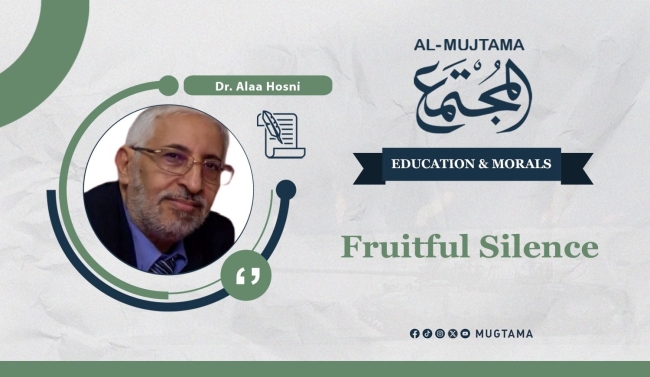In our Islamic heritage, one frequently encounters sayings that praise silence and encourage speaking less in general. There is admiration for those who can express deep meanings and precise thoughts with the fewest words, that many Arabic rhetoric scholars define eloquence by its brevity. "Eloquence is brevity," and "Concise and meaningful speech is the best." In a well-known hadith, it is stated, “A little that suffices is better than an abundance that distracts.” Wisdom is also found in silence: “Silence is wisdom, and few practice it.” Silence helps the wise to reflect, expand their vision, and speak with wisdom: “When vision expands, words diminish.”
Indeed, silence has undeniable virtues, and excessive talking has pitfalls that cannot be ignored. However, I believe that silence should not be praised in all cases. There is the blameworthy silence, which is always condemned. This is the silence of those who are able to confront injustice, repel tyranny, and defend against aggression, yet they remain inactive. Some prefer silence in the face of the gleam of an oppressor's sword, fearing for their fleeting life or seeking material gain, which is cowardly and negative silence. It deserves neither praise nor gratitude. How many rights and lives have been lost because of it, especially when practiced by those who believe their words could influence those in power! I dare say that one of the reasons for our Ummah's backwardness lies in this vile trait—the unproductive silence that likens its practitioner to someone who cannot or does not know how to speak.
On the other hand, fruitful silence is the kind that creates wise individuals. It is the silence that is coupled with reflection, the exploration of thought in God’s creation, where its practitioner increases in faith and wisdom. When they speak, their words are like pearls, and when the situation requires strength, they rise to it.
Silence, combined with spiritual reflection, is a symbol of exceptional and refined personalities. There is a reason why, as part of Allah’s preparation of His Prophet (peace be upon him) before his mission, he sought seclusion in the cave of Hira for several nights, where the Prophet worshiped Allah in silence, engaging in spiritual reflection and contemplating the vastness of Allah's creation and the signs of His greatness. From this, the prophetic tradition of occasionally retreating into seclusion was established, withdrawing from people for a time with the intention of staying in the mosque, so that one may have a share of this fruitful silence.
Our upright Islamic faith elevated this noble human habit — silence with mindful reflection — into an act of worship by which we grow closer to Allah with a productive and practical spirit.
Mindful silence leaves a lasting impact on the believer’s soul and heart as they disengage from the distracting worldly life, allowing the soul to ascend beyond it. It returns with purity and clarity to better face the trials and struggles of life. As a result, it enhances the soul's capacity to influence the course of life and the hearts of others, leaving an unshakeable mark.
Undoubtedly, the fruits of silence with reflection are rarely harvested except by those who truly deserve it, who have prepared themselves through striving and diligent effort. They are the people of high souls and those most deeply connected to the Spirit of Holiness, from whom they receive the inspired wisdom that shapes life and leaves lasting traces on its path.
Thus, it is only through such reflective silence that its stillness becomes a creative, productive movement — not a negative, lost stillness that leads to waste.
-------------------------------------------------------------


